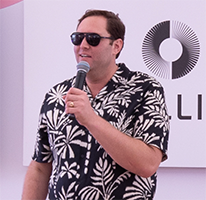This morning, on the anniversary of Sept. 11, I’m bringing my girls to school, as usual, and taking the subway to work.
I will be afraid, even though I believe that security will be tighter than ever before and that terrorists will probably wait to strike again for a day when we are off-guard.
But I am going into the office anyway because feeling afraid during the course of daily life has become normal.
I live near a major subway hub in Brooklyn, the Pacific Avenue station. It crosses my mind, not infrequently, that my station could be the target of the next attack. I’m not terrified, but I sometimes talk myself into a false sense of preparedness. I scan faces looking for a sign that someone is–what–carrying a bomb, planning to plant one? What expression am I looking for? An expression of guilt? A lack of emotion? Religious fervency?
My children worry about me. They don’t connect that worry to any particular event, of course, but I do.
Five-year-old Katya (who comforts herself by sucking her thumb only since last Sept. 11) is afraid of the subway now. She has nightmares about a little girl being sucked out the door and under the wheels of a speeding train. Once in awhile she asks me about the children who lost their parents when the Towers fell.
We spent many weekend evenings in the shadow of those buildings the summer before the tragedy. While her older sister attended a class nearby, Katya and I enjoyed live music in the courtyard of the complex. I watched as she climbed on the sculptures. After collecting Amalia, sometimes we’d visit the underground shopping complex to browse at Borders or window shop at Warner Bros.
Recently, she said, “The Twin Towers always remind me of my friends from preschool, the twins, Noah and Gabriel.”
Amalia, normally a steady, no-nonsense, self-confident 10-year-old, becomes tearful and despondent if I am a few minutes late coming home from work. “I’m just afraid that something happened to you in the city,” she said. “It’s just a bad feeling I can’t explain.”
I say to them what the experts advise. “Some children’s parents got trapped in the buildings and died,” I say. “But most parents live until their children are grown. I am going to live until I am very old.” I point out that I am very observant, that I always get away fast when I see something that could be dangerous.
But, like me, they know all about the trickery of fate.
Like the first-grader at their school who lost his dad when he ran into one of the burning skyscrapers to save lives. And the PTA president, whose husband didn’t work at the WTC, but who died attending a meeting at the top of one tower.
My family is so lucky. With that in mind, there’s nothing else to do but carry on.
In the days after Sept. 11, I worked at home because the girls’ schools were closed. In between reporting direct marketing stories related to the disaster and watching the television news, I cried.
Sometimes Amalia and Katya would spy me and it scared them. But nothing else changed. I kept on working and cooking dinner and pouring the Honey Nut Cheerios in the morning and making them brush their teeth afterwards.
And somehow we’ve put a year of that together.
I’m not going into the office today to prove anything to terrorists. And I don’t frankly see my direct marketing journalism job as contributing a bit to the great patriotic fervor that’s swept the nation.
I’m doing it because the only to get through it is to carry on as usual.
One warm day this fall, the girls and I will visit the glass-enclosed Winter Garden that connected the World Trade Center with the World Financial Center. It was severely damaged, but miraculously survived the disaster, and has been restored and reopened. I can’t shield them from the sight of the recovery at Ground Zero, and all the thoughts and fears that will occur to them there.
But still I think will be good to stand in the sunlight and look up at the palm trees together.
 Network
Network

